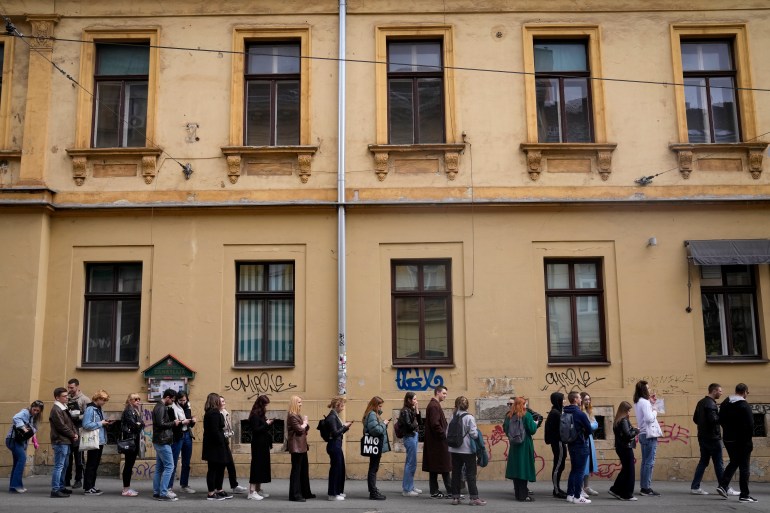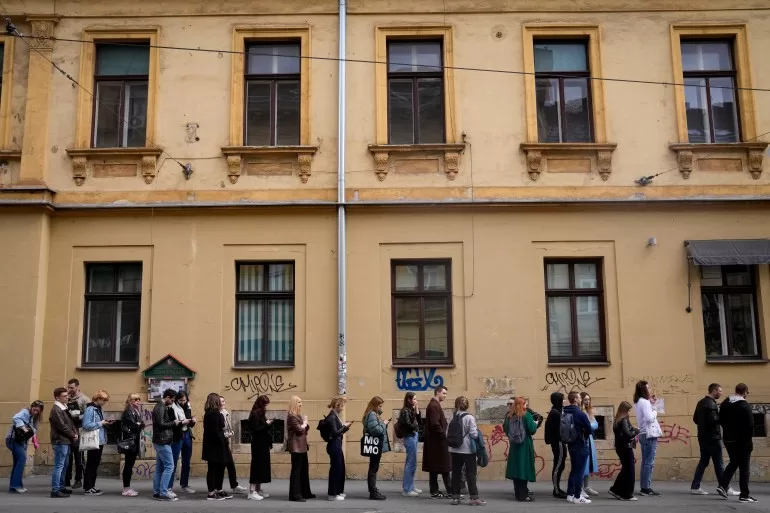Exit poll projects Croatia’s governing HDZ party on track to win 58 seats in 151-seat parliament.
HDZ was on track to win 58 seats in the 151-seat parliament, less than the 66 it previously had. But that would still be more than the opposition coalition led by the Social Democrats (SDP), which is expected to win 44 seats, the exit poll projected.
The right-wing Homeland Movement was set to come third with 13 seats.
Croatians voted in large numbers in the parliamentary election after a bitter campaign waged between the incumbent prime minister and a populist president who wanted the prime minister’s job. Croatia’s constitutional court had earlier ruled that the president could not run for prime minister, or campaign for any party, without resigning first. Croatia’s president, Zoran Milianovic, ignored the order.
The State Election Commission said turnout by 4:30pm (14:30 GMT) was 50.6 percent compared with 34.4 percent at that same time in the last parliamentary election, held in 2020. Polling stations closed at 7pm local time (17:00 GMT).
The outcome, if confirmed, would likely usher in a period of political instability in the European Union member state as the main parties seek to forge alliances with other factions with differing political views.
The showdown between conservative Prime Minister Andrej Plenkovic and left-wing populist President Milanovic has come as the nation wrestles with corruption, a labour shortage, the highest inflation rate in the eurozone and irregular migration.

High inflation and corruption scandals in the past eight years dented support for HDZ, which has dominated Croatian politics since independence in 1991.
Labelling the elections a “referendum on the country’s future”, Milanovic, 57, urged citizens to “go out and vote for anyone but the HDZ”.
Calling Plenkovic “the godfather of crime”, Milanovic highlighted the recent appointment of the country’s new chief prosecutor, a judge with alleged ties to corruption suspects.
Several of Plenkovic’s ministers have stepped down following accusations and the anticorruption fight was key to Croatia’s bid to join the EU in 2013.
Plenkovic has repeatedly accused Milanovic of being “pro-Russian” due to his criticism of EU backing for Ukraine against Russia’s invasion, as well as his opposition to training Ukrainian soldiers in Croatia, which is a NATO member.
